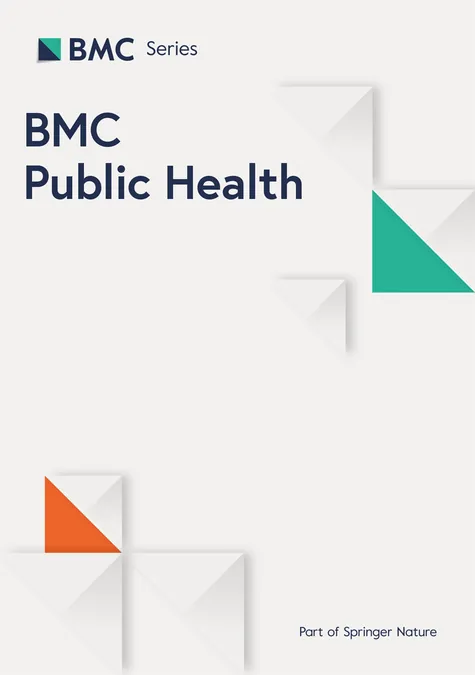
Understanding Public Willingness to Share Personal Health Data and Biological Samples: Key Insights from a Canadian Survey
2024-11-26
Author: Charlotte
In a groundbreaking study examining the willingness of Canadians to share personal health information and biological samples, researchers have unveiled both encouraging insights and concerning challenges. The research focuses on the 2019 Centre for Addiction and Mental Health (CAMH) Monitor survey, which involved 2,827 participants and aims to address critical questions regarding public health data collection in Ontario.
Significance of Data Collection
As population health surveys play a vital role in understanding trends and patterns in health conditions, the collection of biological samples alongside personal health information can significantly enhance the value of such surveys. However, the willingness of individuals to provide this data is critical to the success of these initiatives. But what factors influence this willingness?
Survey Findings
The survey results revealed that only 19.9% of respondents were willing to provide blood samples, while 36.2% were open to providing saliva samples. In stark contrast, a staggering 82.1% agreed to probabilistic data linkage—wherein personal health information is matched anonymously with survey responses—versus just 17% for direct data linkage requiring specific personal identifiers like an OHIP number.
Significant disparities in willingness were observed based on socio-demographic factors such as age, race, employment status, and drug use history. For instance, older adults (75+) were notably more willing to share biological samples than younger counterparts (ages 30-39). Interestingly, psychological distress also appeared to correlate with increased willingness to provide blood samples, suggesting that individuals experiencing health challenges may be more likely to participate in research that could benefit their health.
Question Ordering Effects: A Game Changer?
A particularly fascinating aspect of this study was the examination of 'question order effects.' The researchers found that the sequence in which questions were posed affected the participants' willingness to provide biological samples and personal health information. When saliva sample requests were presented first, participants were significantly more likely to agree compared to when they were asked for overall data linkage first.
Barriers to Participation
Despite the overall high willingness for probabilistic data linkage, the study highlights the challenges researchers face in collecting biological samples. Concerns surrounding privacy, potential misuse of data, and the perceived lack of transparency regarding how personal information will be utilized have contributed to reluctance among certain demographics, particularly among ethnic minorities. This distrust can lead to underrepresentation in health research, further compounding systemic health inequities.
Implications for Future Research
The findings underscore the necessity of encouraging greater participant engagement through improved transparency and trust-building initiatives. Addressing concerns, particularly among marginalized groups, is critical for fostering an inclusive atmosphere that allows diverse populations to benefit from health research.
Additionally, researchers are urged to consider ethical guidelines when applying question order tactics within surveys to avoid manipulation and ensure participant autonomy.
Moving Forward: Bridging Gaps and Building Trust
With the significant implications of these findings, it’s apparent that future health surveys must prioritize ethical practices and the challenges faced by minority populations to ensure equitable representation in health research. Enhanced trust in the research process can only serve to improve data quality, which is indispensable for addressing pressing clinical and public health questions that affect everyone, especially underrepresented groups.
Ultimately, as researchers aim to make strides in understanding health behaviors and outcomes, addressing these hurdles offers a pathway to more comprehensive and inclusive health data collection practices.



 Brasil (PT)
Brasil (PT)
 Canada (EN)
Canada (EN)
 Chile (ES)
Chile (ES)
 Česko (CS)
Česko (CS)
 대한민국 (KO)
대한민국 (KO)
 España (ES)
España (ES)
 France (FR)
France (FR)
 Hong Kong (EN)
Hong Kong (EN)
 Italia (IT)
Italia (IT)
 日本 (JA)
日本 (JA)
 Magyarország (HU)
Magyarország (HU)
 Norge (NO)
Norge (NO)
 Polska (PL)
Polska (PL)
 Schweiz (DE)
Schweiz (DE)
 Singapore (EN)
Singapore (EN)
 Sverige (SV)
Sverige (SV)
 Suomi (FI)
Suomi (FI)
 Türkiye (TR)
Türkiye (TR)
 الإمارات العربية المتحدة (AR)
الإمارات العربية المتحدة (AR)